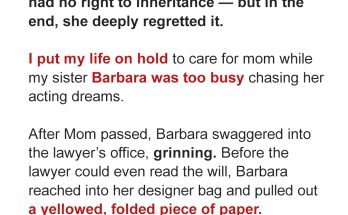On Monday, December 9, Liz Cheney, a former member of Congress and the January 6 Committee, asserted that she should not face imprisonment despite allegations of having destroyed over 100 documents related to the committee’s investigations. This statement followed remarks made by President-elect Donald Trump on December 8, in which he accused committee members of destroying evidence that could have cleared him of any wrongdoing.
Representative Barry Loudermilk, who conducted an investigation into the committee and uncovered the missing files, stated to Fox News in January 2022, “It is evident that the January 6 Committee took significant measures to prevent the American public from accessing certain documents generated during their investigation. It also seems that Bennie Thompson and Liz Cheney aimed to obstruct our Subcommittee by neglecting to preserve essential information and videos as mandated by House regulations.”
In an interview with NBC’s Kristen Welker, Trump criticized the January 6 Committee members, declaring, “Cheney committed an inexcusable act, along with Thompson and the other members of this politically motivated committee. They deleted and destroyed all evidence.”
He further remarked, “Biden has the option to grant them a pardon if he chooses to do so, and perhaps he should.” Trump elaborated on the necessity of a pardon, stating, “Consider that the unselect committee conducted a year and a half of sworn testimony, and after gathering all the evidence, they deleted and destroyed nearly everything. There is nothing remaining. This is unprecedented, and they deny any wrongdoing. In a civil case, such actions would lead to imprisonment.” When Welker inquired if he believed Cheney should be jailed, he began to respond, “Anyone who voted in favor—” but was interrupted by Welker, who asked, “Will you instruct your FBI director and attorney general to take action against them?”
Additionally, Trump raised questions regarding Biden’s motivations for granting the pardons in the first place. “But why would Biden do that? He pardoned her and pardoned everybody,” he remarked. The president also addressed legal precedents concerning cases involving the destruction of documents. “The reason is that they destroy documents, and if you’re even in a civil case, which this wouldn’t be, I mean, people would go to jail for a long time for doing that,” he stated.
Former Republican Arizona State Senate primary candidate Josh Barnett shared his thoughts on the pardons in a post on X. “A pardon typically provides forgiveness for a specific offense or a set of offenses committed prior to the issuance of the pardon. However, if an individual is subsequently found guilty of treason after receiving a pardon for earlier crimes, the pardon does not apply to this new offense,” he explained.
After discussing the legal theory, he concluded, “A pardon would not shield an individual from legal repercussions for treason committed or uncovered after the pardon was granted. Nevertheless, the precise implications may vary based on the language of the pardon and the laws of the relevant country or state. If you are examining a particular case or require detailed legal counsel, it would be prudent to consult with a legal expert.”
She also stated in reports from the New York Times that the notion of penalizing current and former members of Congress for the destruction of evidence constitutes an “assault on the rule of law.” She asserted, “Trump’s proposal that members of Congress who subsequently investigated his unlawful and unconstitutional actions should face imprisonment represents a continuation of his attack on the rule of law and the very foundations of our republic.”
Moreover, she emphasized that there is no “factual or constitutional” justification for punishing individuals for evidence destruction, asserting, “There is no conceivable factual or constitutional justification for what Donald Trump is proposing — a Justice Department inquiry into the activities of a congressional committee — and any attorney who attempts to pursue such a course would soon find themselves engaging in conduct subject to sanctions.”

